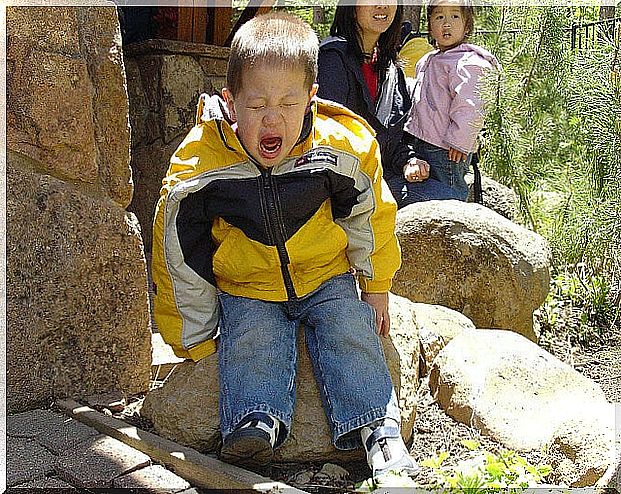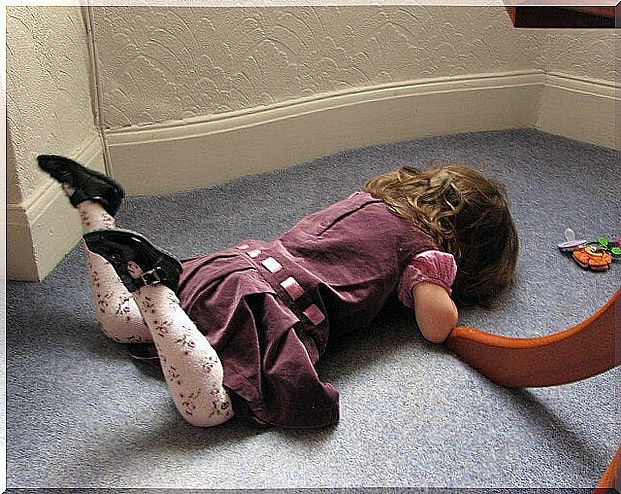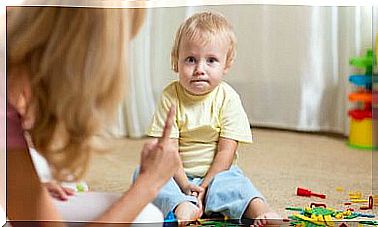13 Mistakes We Make When Disciplining Our Children
Discipline is one of the most necessary tasks a parent must undertake. Doing it the right way takes time and effort, but it pays off big.

Disciplining our children is one of the most important actions during parenting. Doing it properly may take some time but it will undoubtedly generate great benefits for children and adults.
The following are some of the most common failures that parents have when creating discipline at home. Take note of them to try to avoid them as much as possible.
Most frequent mistakes when disciplining our children
By setting standards
- Not following the rules you set. If you tell your child that he can’t watch TV without finishing his homework and then let him do it, the rule will lose its validity entirely. Make sure you are consistent in applying the rules.
- Ignore the age of the children. Before disciplining our children we must take into account the characteristics of their age. The same corrections should not be applied at all ages.
- Shout when giving instructions. A voice that is too high is not the best way to get your children to do what you expect. The body’s automatic response to a scream is to resist taking the indicated action.
- Not setting an example. It is not at all coherent that you are screaming around the house requesting silence. Parents are the role model of children and the attitudes that they have in many cases are a response to the imitation of what you do. Put into practice all the values and actions that you want your children to have.

When choosing the method
- Overuse timeouts. Time out is very effective for your children to calm down and reflect on unacceptable behavior, but using it too often or for long periods of time makes it less effective. Remember that the time out should last for one minute for each year of age.
- Give them rewards for good behavior. Offering them a treat or a gift in exchange for a good attitude will work in the short term but will have no real effect on the child’s values. The reward should be the satisfaction of doing things correctly.
- Establish punishments for something you did not see. Especially in sibling fights there is a tendency to issue orders and punishments without fully knowing the situation. Make sure you know the situation well before deciding what action to take.
When making corrections
- Don’t be specific. When you label a behavior as inappropriate, you must be clear with your words and specify what exactly should not be repeated. Be clear so that the children know precisely what it is that makes the family uncomfortable.
- Put aside the educational value of the call for attention or punishment. What is sought when correcting a behavior is to get the child to understand why what he has done is not right. If you do not accompany your correction with a reflection or explanation, it will be less significant.
- Forget love. It is essential that before disciplining a child you make an emotional connection. Children should know that they are loved unconditionally, even when they have done something that needs to be improved. Scolding should not have an emotionally distancing connotation.
- Bring past mistakes to the present. Each situation is different and independent; When calling attention to your children, you should focus on what happened at the right time.
- Make it too personal. Corrections should focus on the behavior and not the person. Avoid using adjectives that define it as “bad,” “inattentive,” “messy,” and so on. Suggestions must be free from personal criticism.
- Don’t go to the root of the problem. Before claiming your children for not doing something you asked them to do, make sure there is no underlying reason that prevented them from doing it. Evaluate the circumstances to be able to make a decision or choose an appropriate corrective for each case.
Discipline with love and consistency
In short, imposing discipline and setting limits is essential for our children to enjoy adequate emotional development. But we have to make sure that love and consistency are the foundation of all our actions in this regard.










